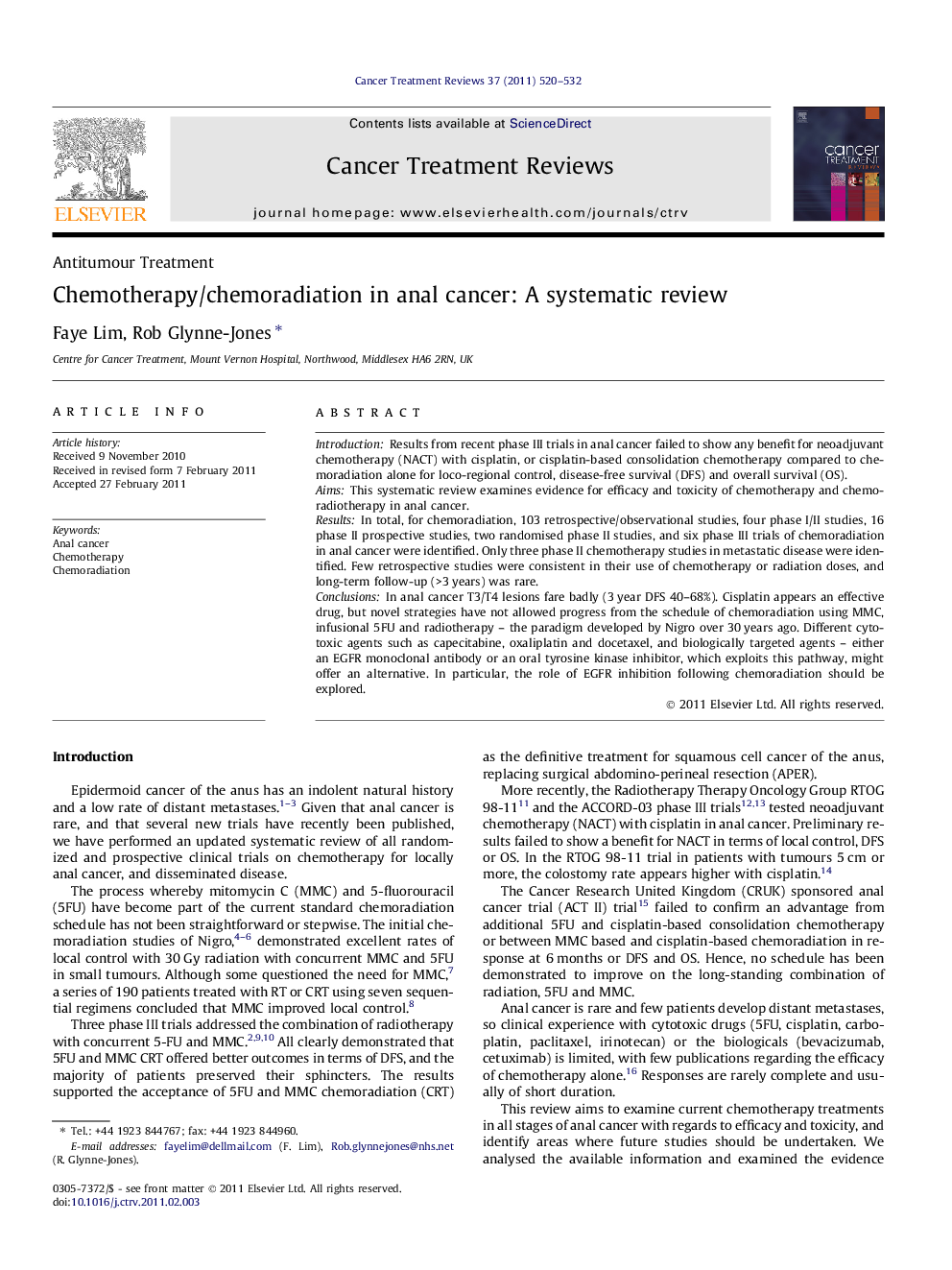| Article ID | Journal | Published Year | Pages | File Type |
|---|---|---|---|---|
| 3980049 | Cancer Treatment Reviews | 2011 | 13 Pages |
IntroductionResults from recent phase III trials in anal cancer failed to show any benefit for neoadjuvant chemotherapy (NACT) with cisplatin, or cisplatin-based consolidation chemotherapy compared to chemoradiation alone for loco-regional control, disease-free survival (DFS) and overall survival (OS).AimsThis systematic review examines evidence for efficacy and toxicity of chemotherapy and chemoradiotherapy in anal cancer.ResultsIn total, for chemoradiation, 103 retrospective/observational studies, four phase I/II studies, 16 phase II prospective studies, two randomised phase II studies, and six phase III trials of chemoradiation in anal cancer were identified. Only three phase II chemotherapy studies in metastatic disease were identified. Few retrospective studies were consistent in their use of chemotherapy or radiation doses, and long-term follow-up (>3 years) was rare.ConclusionsIn anal cancer T3/T4 lesions fare badly (3 year DFS 40–68%). Cisplatin appears an effective drug, but novel strategies have not allowed progress from the schedule of chemoradiation using MMC, infusional 5FU and radiotherapy – the paradigm developed by Nigro over 30 years ago. Different cytotoxic agents such as capecitabine, oxaliplatin and docetaxel, and biologically targeted agents – either an EGFR monoclonal antibody or an oral tyrosine kinase inhibitor, which exploits this pathway, might offer an alternative. In particular, the role of EGFR inhibition following chemoradiation should be explored.
